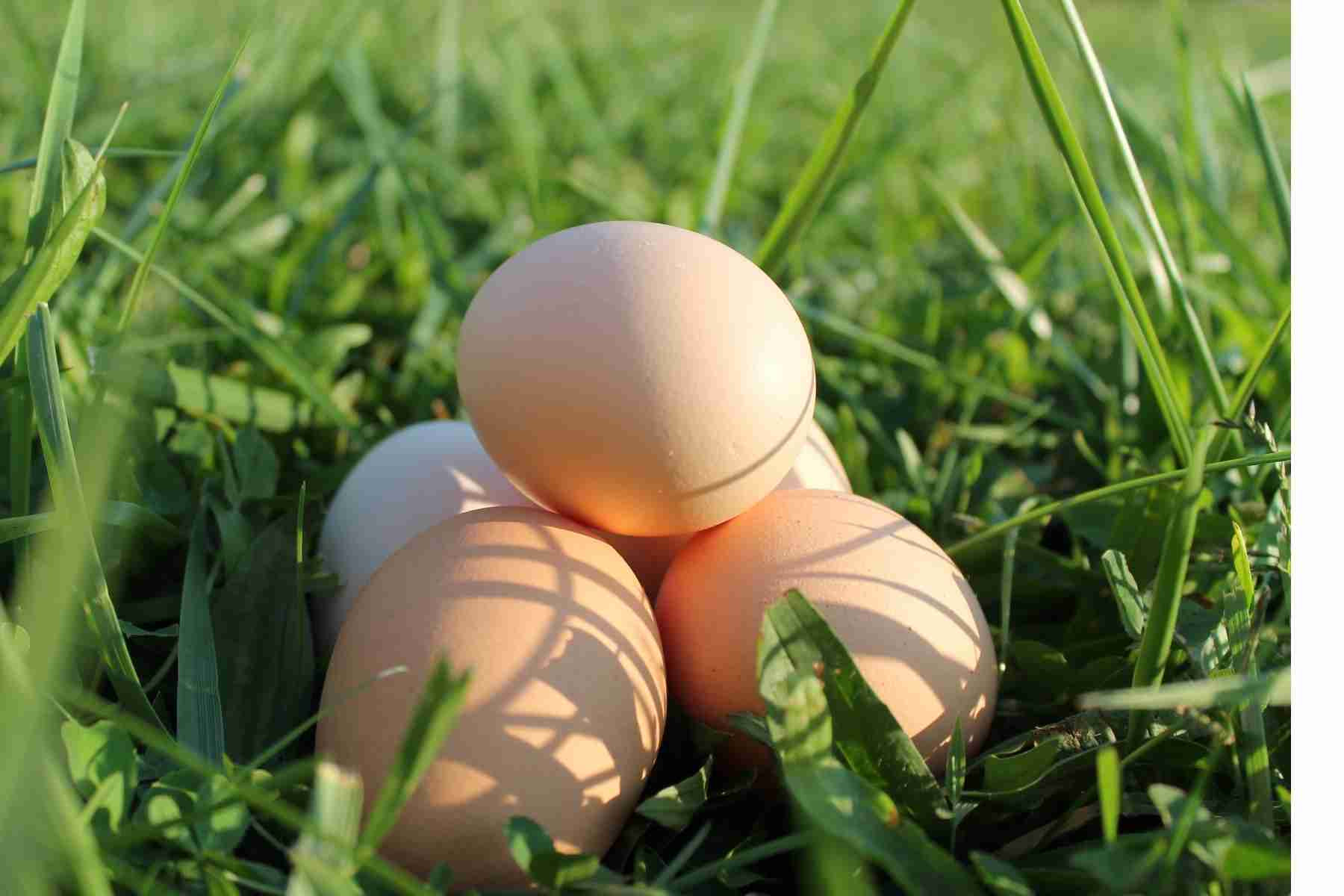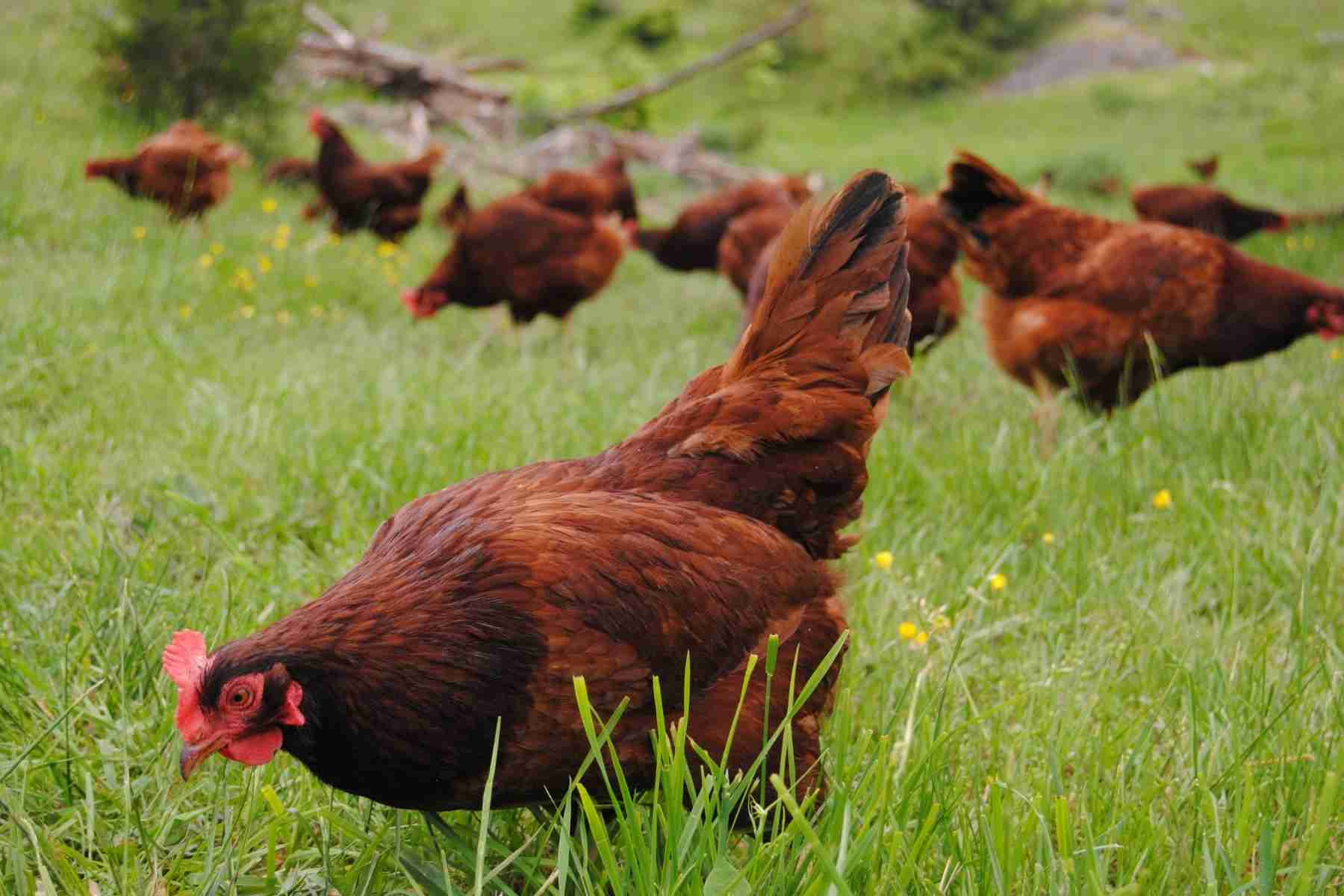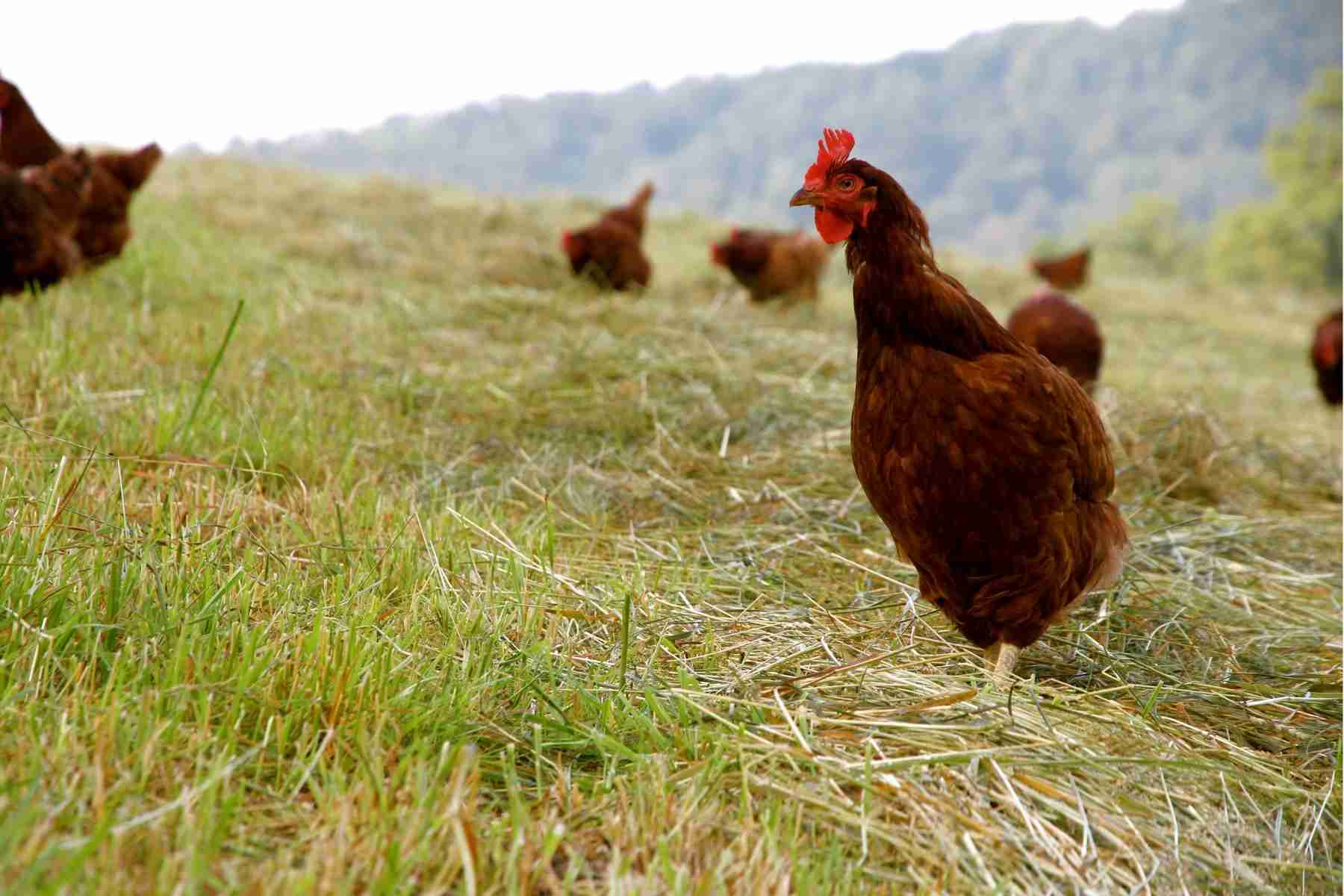Pasture Raised Chicken Eggs Principles:
By moving chickens daily to fresh green grass we produce healthy eggs and healthy land!
What Makes Pastured Chicken Eggs Special
We partner with Edgewood Family Farm to provide you, clean pastured eggs as seen and described below. These egg layers are the work horses of the Farm.
Pastured Egg layers work hard and are the real deal. Rising early every morning, they take a few minutes to lay an egg, eat some breakfast, get a drink of water and then get to work. A full day of hunting bugs, scratching cow pies and pulling worms awaits. A light lunch of grass and if its hot, an afternoon siesta. Full and happy at the end of the day they climb back into the egg mobile and are asleep by dark. This is how the perfect egg is made!

Moved Daily to Fresh Pasture
Pastured chicken egg layers are not just “given outdoor access”; they are constantly outdoors after they reach three weeks of age. We take great care in raising and producing healthy, humanely raised chickens on our farm. As you can see from the pictures, the chickens have full access to grass, pecking on the weeds and eating worms and bugs. They have wide open spaces with an egg mobile “pasture shelter” which keeps predators like foxes, weasels and raccoons from coming in and attacking the chickens at night. They are supplemented with non-GMO (not genetically modified) grain and fishmeal. We frequently move the egg layers to fresh pasture by moving their egg mobile (home on wheels) to a new location. This rotational grazing enables the chickens to fertilize the soil with their manure and to eat the grass, forage and bugs before moving on to fresh pasture.
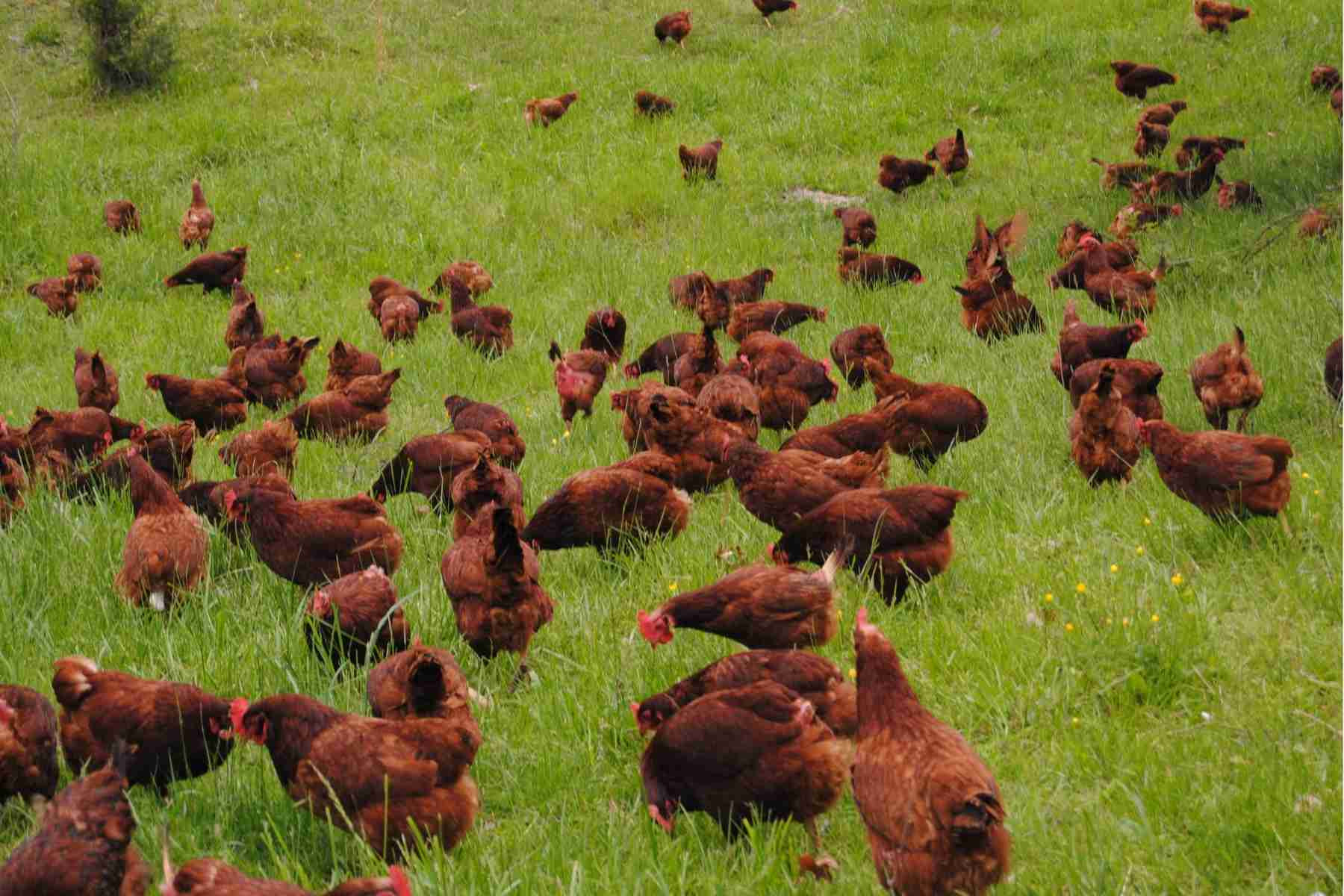
Quality You Can Trust:
No antibiotics ever, or any growth promotants, DRUG-FREE
The chickens live outdoor on untreated pasture
Moved frequently to new areas of fresh grass
All-natural diet high in grass and bugs
Supported by GMO-free feed from local producers/mill
High levels of chlorophyll
Rich in Vitamins & Minerals
Eggs from pastured hens are far richer in vitamin D
Eggs from hens raised outdoors on pasture have from three to six times more vitamin D than eggs from hens raised in confinement. Pastured hens are exposed to direct sunlight, which their bodies convert to vitamin D and then pass on to the eggs. Vitamin D is best known for its role in building strong bones. New research shows that it can also enhance the immune system, improve mood, reduce blood pressure, combat cancer, and reduce the risk of some autoimmune disorders.
Eggs from pastured hens are higher in folic acid and vitamin B12
Now there's another good reason to purchase pasture raised eggs, because of the studies that have shown that they have higher amounts of folic acid and vitamin B12, two very important vitamins.
Eggs from pastured hens are higher in chlorophyll
There are a number of benefits to eating food that is high in chlorophyll. Chlorophyll is able to purify the body, relieve inflammation, and act as a rejuvenate tonic. It acts as a mild bowel detoxifier or laxative and is helpful for irritable bowel syndrome, cramping pains in intestines, and mild constipation. Chlorophyll also feeds a weakened bloodstream and helps to detoxify "dirty" blood. The liquid does not need to be digested so it's assimilated quickly into the bloodstream. These are just a few of the uses!
Isn’t Organic Cage-free Chicken Just the Same as Pastured?
Unfortunately, there are a lot of shortcuts being made in the poultry industry, so even chickens marked “certified organic” and “cage-free” are actually not given any access to pasture whatsoever. They eat no bugs (which is part of their natural diet), and instead are only given grain as their main nutrition. According to an in-depth article on chicken on World’s Healthiest Foods, “With respect to organic standards, no minimal amount of days spent outdoors or time per day spent outdoors is required for production of organic chicken. Nor must any minimal amount of chicken feed be obtained from a pasture setting.” As opposed to their conventional counterparts, the organic ones are not stuffed in cages; however, they are still stuffed in large poultry houses, with not much room to move and no access to fresh pasture. You’ve likely seen the proud claim on the grocery store package of organic chicken which says “fed an all-vegetarian diet”. That’s when you know that they were given no access to the outdoors and haven’t eaten a bug in their lives!
Conventional chicken, on the other hand, are often given rather nasty stuff to eat, including rendered animal byproducts (not to mention the antibiotics, growth-promoting additives, and highly processed GMO grain as the mainstay of their diets). So, of course the all-vegetarian claim of organic is way better than that, but it still pales in comparison to the way nature intended chicken be raised: out in nature feeding on bugs and naturally fertilizing the land, as we strive to do. It has been noted before that the omega-3 to omega-6 fatty acid ratio is much better in pasture-raised chicken as compared to its store-bought organic and conventional counterpart, and this balance is one important factor to get right for good health. Similarly, vitamins A, D3, and E in pastured chicken were also found to be significantly higher than in store-bought organic or conventional chicken (American Pastured Poultry Producers Association).

Some Delicious Chicken Egg Recipes to Try
Mushroom, Tomato, Basil Fritata
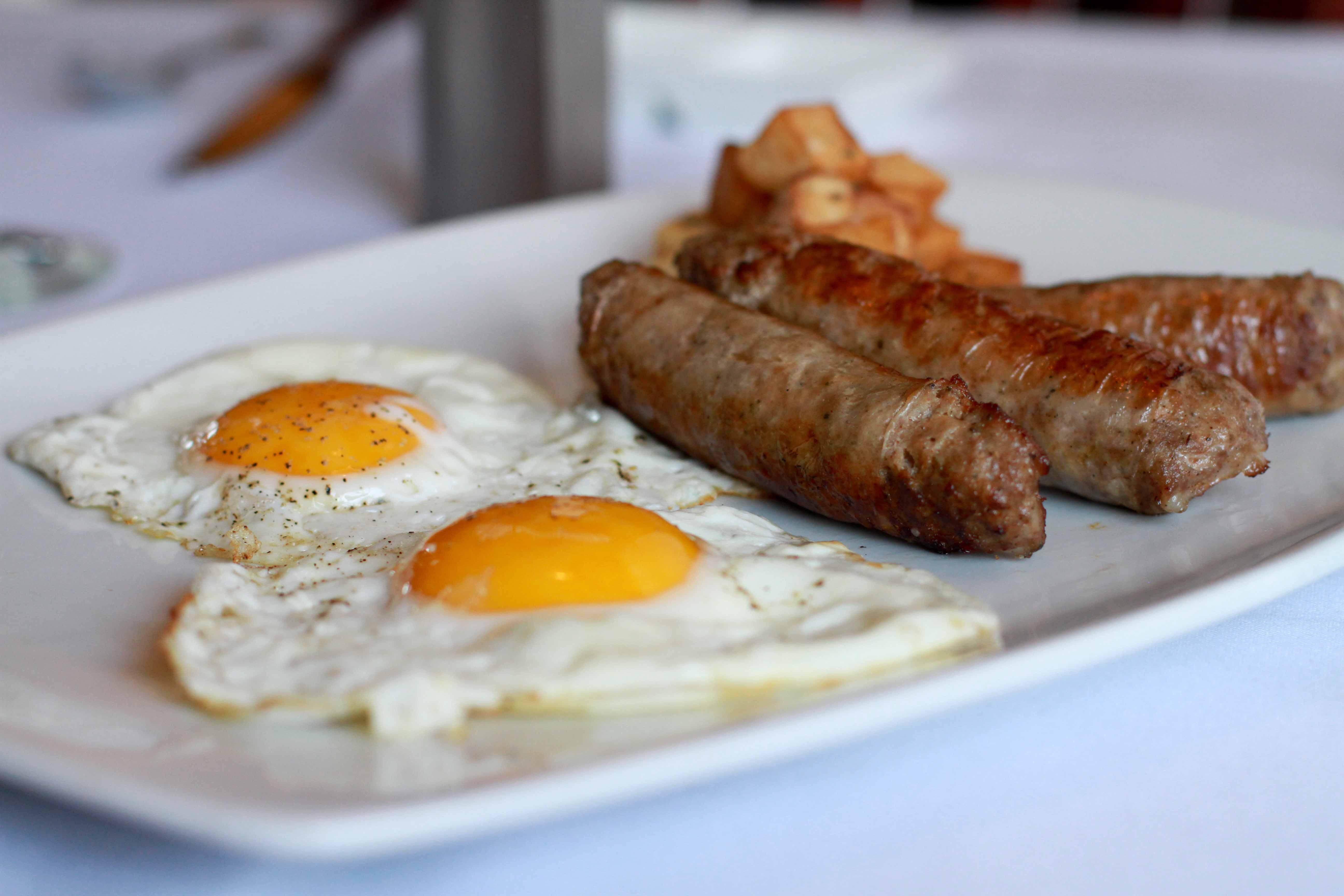
J&L Green Farm © 2021. All rights reserved.


